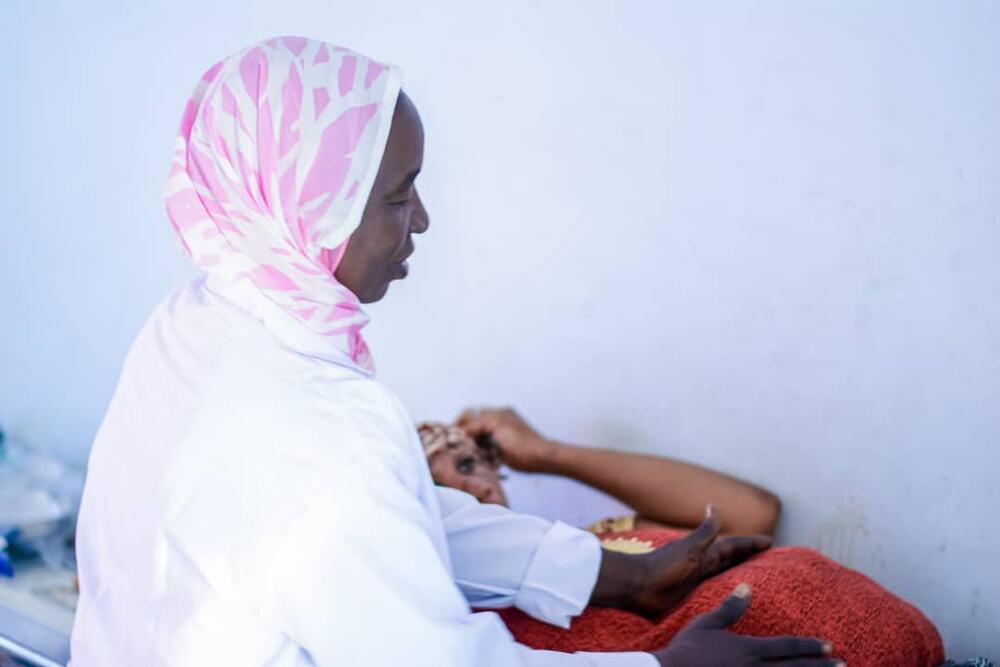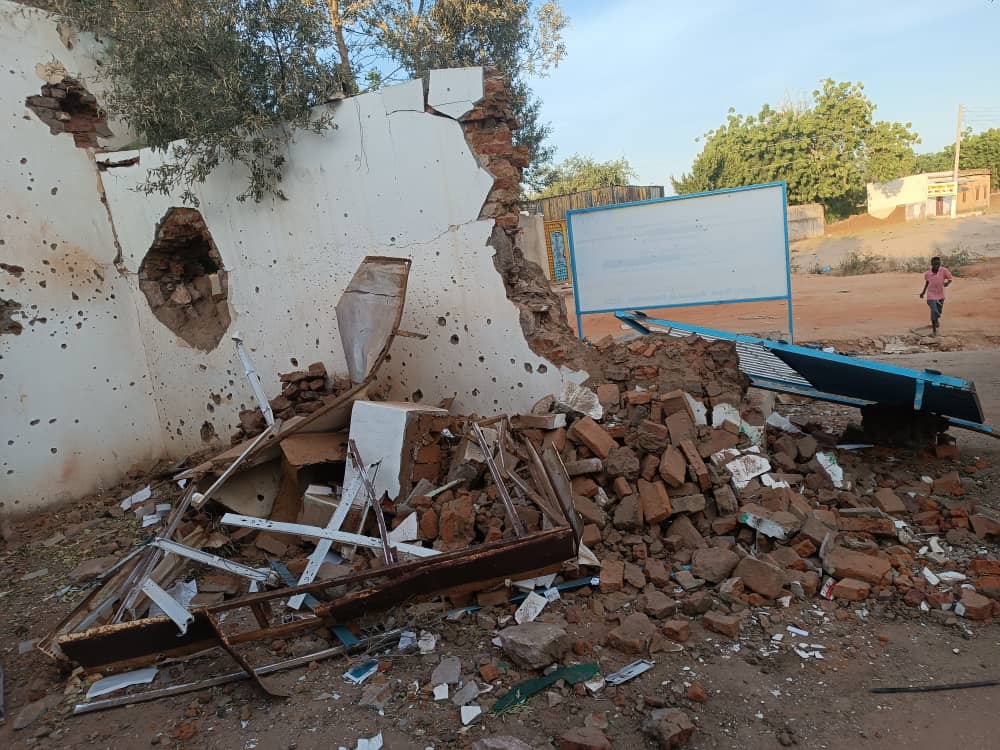News
A glimmer of hope for women and girls as a sexual and reproductive health clinic reopens in Sudan’s West Darfur State
- 23 January 2024
News
WEST DARFUR STATE, Sudan – “I came to the health centre after the fighting calmed down, but I found it destroyed – there were no beds left, no equipment, no supplies,” recalled Hiba*, a doctor in the city of El Geneina, in Sudan’s West Darfur State.
The Ardamata clinic is supported by UNFPA, the United Nations sexual and reproductive health agency, and when functional provides critical support for some 300,000 people, both those displaced within Sudan and from host communities.
Its services range from sexual and reproductive health support to gender-based violence response and clinical management of rape. Despite the violence and widespread upheaval since conflict spread across Sudan in April 2023, health and aid workers in the community have been committed to carrying on their work. But when armed groups stormed and looted the facility in November, staff could no longer ensure even basic services, leaving a significant gap in care for those most in need.
Where the security situation allowed, they persevered and delivered care straight to women’s doors. “After the destruction of the centre, we visited pregnant women and girls at their homes. However, we faced access challenges and we couldn’t handle complicated cases,” explained Sara*, a midwife. “For some [pregnant women], we had to deliver them in the street.”
The situation in Sudan is dire. Some 6 million people are internally displaced within the country – 4.5 million of them since April – including an estimated 167,000 women who are currently pregnant. Reports of brutal sexual violence, coercion and trafficking of women and girls are rising at alarming rates, while protection mechanisms have shuttered and temporary shelters become overwhelmed.
In under a year there have been 60 reported attacks on health infrastructure, and 70 per cent of facilities in conflict zones are not functional. Health workers have gone without pay for months and many facilities remain occupied, looted or destroyed. Those that remain are reporting shortages of blood, transfusion equipment, intravenous fluids and medical supplies.

A resilient response
After supporting the repair of the clinic in December 2023, UNFPA together with local partner the Child Development Foundation and international donors replaced essentials such as beds, lighting, surgical tools and midwifery equipment so the clinic could resume operating.
“We performed 49 deliveries at the centre [in December],” health-care provider Khalid* told UNFPA. “We are delighted to resume serving the women and girls of Ardamata.”
“These women would be left without medical care if the centre remained out of service.”
As the clinic resumes its full range of support, including for sexual and reproductive health and gender-based violence response and prevention, health worker Eman* said, “We now offer all services for free, including deliveries and postnatal care.”
Funded by the European Union, the Republic of Korea and the United States, the clinic not only provides medical care, but also gives the women and girls of El Geneina a sense of security in a time of severe crisis.

UNFPA in Sudan
UNFPA is supporting health centres and safe spaces operating across Sudan, along with nine temporary clinics deployed to provide sexual and reproductive health and gender-based violence protection services in Al Jazira, Blue Nile, Gedaref, Kassala, Northern, West Darfur and White Nile States.
Women’s and girls’ health and safety is especially jeopardized in conflict and displacement settings; they are forced to seek refuge in unsanitary, crowded shelters and are often responsible for collecting food, fuel and water – exposing them to violence and abduction as they must venture far and alone.
More than 4.2 million women and girls in Sudan are at risk of gender-based violence, a number that could rise to 6.9 million in 2024. Despite severely compromised access and acute insecurity, the staff of the Ardamata clinic remain devoted to supporting their communities as the lives and well-being of millions of people are increasingly hanging in the balance.
*Names changed for privacy and protection